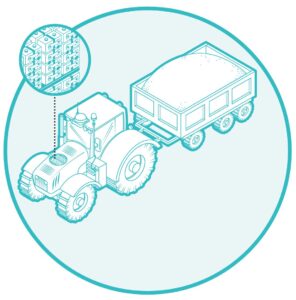One of the hardest things for me to think about is what I need to do to prepare for my death. There are many items you should have in order for those you leave behind. Today there is something new to think about – our digital files. For me, most of my documents aren’t that important, but some, such as photos, could have sentimental value. The files I do have are spread all over the internet. I have files on Dropbox, OneDrive, Google Drive, Google photos, in my email, and several other places. Many people would consider the information stored on Facebook very valuable. So how do we pass this data onto our loved ones? Let’s look at a few options.
My first instinct would be to make sure all data is backed up on some type of storage media that would be easily accessible to my family. This could be an internal hard drive, a removable USB drive, or even a backup NAS appliance. This would probably be the easiest way, if you’re like me and everything is spread all over the place. I take advantage of many cloud solutions and I could never afford enough storage to back it all up at my house. Some people even rely on cloud providers for their backup solutions. Another option would be to give someone you trust all your user names and passwords. This could be done digitally by using a password vault program like LastPass which allows for passing on your digital assets. With this solution, the person you trust will be notified how to access your data after you pass away. The down side is all your passwords are now in one place and online. Should the company get hacked, all your accounts are compromised.
So, what happens to our accounts when we pass on? It depends on the account. Not all providers have the same policies when it comes to releasing your information to family and loved ones. Some companies don’t even have a process or procedure in place to accommodate it. What to do with a dead user’s information remains a tricky subject for most online service providers. The problem involves who actually owns the data – the party that sent the data, received the data, or the site that stores the data.
Facebook has added a feature called “Legacy Contact” which allows you to designate someone to manage your Facebook account after you are gone. Once the Facebook profile is memorialized, the legacy contact can look after your account by responding to new friend requests, update your profile picture and photo cover, and request the removal of your account. However, there are some limitations. The legacy contact cannot login to your account, remove or change past posts, read your messages, remove your friends, or add a new legacy contact to your account. Companies like Amazon and Apple make it clear that you do not own the data or content that you download. What you have purchased is a license to access or use the content, and that license expires after you die.
Since there is no standard regarding how an internet company handles your online account after death, it would be wise to document all accounts for your family and loved ones to access. Keep it in a safe place as a memorandum to your will, and make sure you document in your will who you want to have access to these accounts. Also make sure you have some method of documenting your passwords that is safe and easy to manage. If you use the same email account to register all your services, as long as someone has access to that email account, it is possible to change passwords to other accounts and gain access. This method may also require you to document your answers to security questions for sites that have that security feature turned on.
Planning for our departure isn’t always the most pleasant thing to do. Just remember, even though you saved your files in the “cloud,” you’re not going to have access to them when you get to heaven. Make sure you have a plan to pass those precious pictures, or other important files, on to your family.










